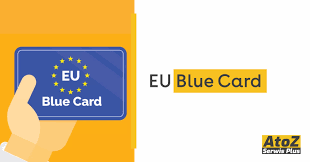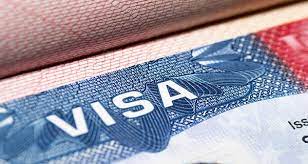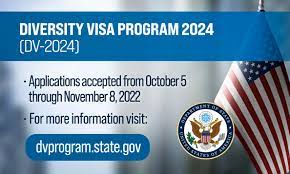EU Blue Card
The EU Blue Card Program is designed as a work and residency permit, aiming to entice skilled professionals to relocate to European Union member countries. Often likened to the Green Card program in the United States, it offers opportunities for qualified individuals seeking employment in the EU. Here’s a closer look to determine if you meet the criteria for this card.
Understanding the EU Blue Card: The EU Blue Card serves as a combined work and residence permit, enabling highly skilled non-European Union (EU) citizens to pursue employment and settle in any EU country participating in the Blue Card program. It serves as a means to attract talented professionals from across the globe to contribute their expertise within the European Union.
Eligibility Requirements: To qualify for the EU Blue Card, candidates must hold a higher education degree or an equivalent qualification. Additionally, they must secure a job offer in an EU country that meets a specified minimum salary threshold. Applicants are also required to possess adequate health insurance coverage and sufficient financial means to support themselves and their dependents. Typically issued for a duration ranging from one to four years, the Blue Card can be renewed upon expiration.
Benefits for Blue Card Holders: Holders of the EU Blue Card enjoy several advantages, including the freedom to move within the European Union without restrictions. They are also permitted to bring their family members to reside with them. Moreover, after a designated period, Blue Card holders may have the opportunity to apply for permanent residency in the European Union.
In summary, the EU Blue Card Program serves as a pathway for highly skilled professionals to secure employment and residency in EU member countries, offering numerous benefits and opportunities for personal and professional growth within the region.
This card is issued by the following countries:
S/N |
List of Countries Issuing Blue Card |
| 1 | Austria |
| 2 | Belgium |
| 3 | Bulgaria |
| 4 | Croatia |
| 5 | Cyprus |
| 6 | Czech Republic |
| 7 | Estonia |
| 8 | Finland |
| 9 | France |
| 10 | Germany |
| 11 | Greece |
| 12 | Hungary |
| 13 | Italy |
| 14 | Latvia |
| 15 | Lithuania |
| 16 | Luxembourg |
| 17 | Malta |
| 18 | Netherlands |
| 19 | Poland |
| 20 | Portugal |
| 21 | Romania |
| 22 | Slovakia |
| 23 | Slovenia |
| 24 | Spain |
| 25 | Sweden |
EU Blue Card Validity
If the contract spans more than one but less than three years, the European Union Blue Card is initially granted for three years or the duration of the individual’s work contract, whichever ends first. Upon expiration, the card can be renewed, and during its validity, it extends for the period of the contract plus three months, providing an opportunity for job search or contract extension.
The EU Blue Card is categorized into seven types:
- Researchers
- Vocational trainees
- Students
- Seasonal workers
- Self-employed/entrepreneurs
- Intra-corporate transfers
- Highly-qualified or skilled workers
Eligibility for the EU Blue Card varies by category but generally requires:
- Non-European Union citizenship
- A master’s degree or three years of professional experience
- Over five years of work experience
- Proof of job offer or one-year work contract in an EU country
- Salary exceeding 1.5 times the country’s average gross annual salary
- Valid health insurance and travel documents
- Compliance with national legal criteria for regulated professions
Application for the EU Blue Card can be initiated by the individual or their employer, with the process differing across member countries. Documentation requirements include completed application forms, valid passports, passport photos, employment contracts, educational/professional qualifications, health insurance proof, application fee payment, employer’s statement, and ensuring no threat to state security. Processing typically takes 90 days.
Recognition of qualifications for regulated professions must be sought from the applicant’s home country.
EU Blue Card holders enjoy various rights such as:
- Tourist travel within the EU for up to 90 days in a 180-day period
- Access to social, human, cultural, and economic rights, including healthcare and education
- Family reunification privileges for spouse, registered partner, and unmarried minor children
- Temporary leave from the EU for up to 12 months without losing the card
- Equal pay and working conditions as citizens of member countries
- Improved criteria for obtaining permanent residence visa.
EU Blue Card Requirements
To qualify for the European Union Blue Card, you must satisfy the following criteria:
- Qualifications: Hold either a higher education degree or possess a minimum of five years of professional experience in your respective field. Specific qualifications vary depending on the country of application.
- Job Offer: Obtain a job offer from an employer in an EU member state participating in the Blue Card program. The offered position should require high qualifications.
- Salary: Ensure that the job offer includes a salary at least 1.5 times the average gross salary of the country where employment is sought. The specific salary requirement varies by country.
- Health Insurance: Maintain health insurance coverage for yourself and any accompanying family members who will reside in the European Union.
- Financial Resources: Demonstrate adequate financial resources to support yourself and your family members during your stay in the EU.
- Language Proficiency: Some countries may require proof of proficiency in the local language relevant to your job.
- No Threat to Public Policy: Must not pose any threat to public policy, security, or health.
It’s essential to note that the specific requirements for the European Union Blue Card can differ based on the country of application. It’s advisable to consult with the relevant authorities in the desired country for detailed information on the prerequisites.
Comparison with Work Permit:
- Eligibility: The Blue Card generally demands higher qualifications compared to a standard work permit, which might be available for roles with lower qualification requirements.
- Duration: Blue Cards are typically issued for one to four years, whereas work permits may have varying durations depending on the country and circumstances.
- Benefits: Blue Card holders may enjoy privileges like family reunification and potential for permanent residency, not typically offered with work permits.
- Mobility: Blue Card holders have freedom of movement within the EU, whereas work permits may tie the holder to a specific job or employer.
- Processing Time: Blue Card applications usually entail longer processing times due to stricter eligibility criteria.
Moreover, Blue Card holders can apply for permanent residency, with eligibility criteria based on language proficiency and duration of stay in the country. Time spent outside the country doesn’t count towards permanent residency application.
FAQs On EU Blue Card
Here are some common inquiries regarding the European Union Blue Card:
- What is the EU Blue Card? The EU Blue Card is a permit allowing highly skilled non-European Union citizens to work and reside in participating European Union countries.
- What are the benefits of the EU Blue Card? Benefits include free movement within the EU, family reunification, and the prospect of permanent residency after a certain period.
- What are the eligibility requirements for the EU Blue Card? Requirements include a higher education degree or five years of professional experience, a job offer meeting salary thresholds, adequate health insurance, and resources to support oneself and family.
- How long is the EU Blue Card valid for? Typically issued for one to four years, renewable upon expiration.
- Can I change jobs while holding an EU Blue Card? Yes, but obtaining a new card is necessary if the job change is to a different EU country.
- Can I apply for permanent residence with an EU Blue Card? Yes, typically after two to five years depending on the country.
- How long does it take to process an EU Blue Card application? Processing times vary by country and situation, often taking several months.
- Which countries participate in the EU Blue Card program? All EU countries except Denmark, Ireland, and the United Kingdom are participants.
- What is the purpose of the EU Blue Card? It aims to attract highly skilled professionals from outside the EU to work within its borders.
- What are the benefits of the EU Blue Card? Holders can enjoy free movement within the EU, bring family members, and pursue permanent residency.
- What are the eligibility criteria for the EU Blue Card? Criteria include education or experience, a qualifying job offer, adequate health coverage, and meeting country-specific requirements.
- How long is the EU Blue Card valid for? Typically issued for one to four years and can be renewed.
- Can I change jobs while holding an EU Blue Card? Yes, though a new card may be required for jobs in different EU countries.
- Can I apply for permanent residence with an EU Blue Card? Yes, after a certain period, typically two to five years depending on the country.
- How long does it take to process an EU Blue Card application? Processing times vary but can take several months based on country and circumstances.






